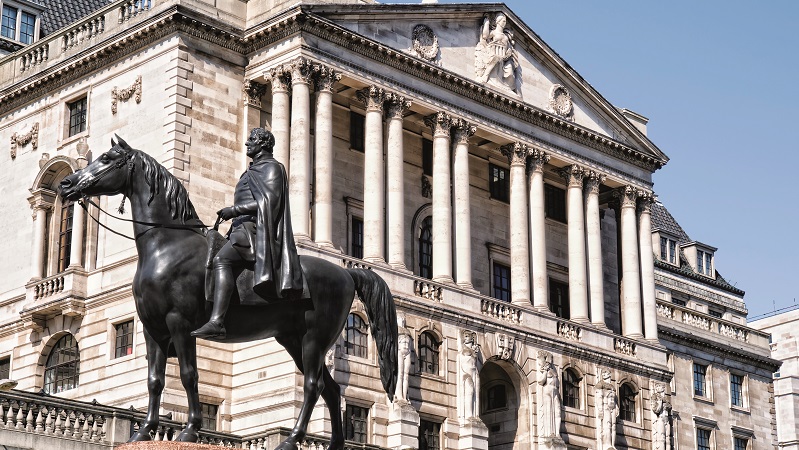Russia’s invasion of Ukraine against a backdrop of rapidly accelerating inflation saw the European Central Bank (ECB) decide against raising rates on Thursday.
In early February, expectations were for a rate increase in Q4 at the earliest. So, in one sense, the ECB’s decision is not unexpected. On the other hand, those predictions were made before Russia invaded Ukraine on 24 February, sending energy prices skyward.
| Current | Last Change | |
| Main Refinancing Operations | 0.00% | 0.05% – March 2016 |
| Marginal Lending Facility | 0.25% | 0.30% – March 2016 |
| Deposit Facility | -0.50% | -0.40% – Sept 2018 |
While the ECB described the invasion as a “watershed for Europe” and said it would “implement the sanctions decided by the European Union and European governments”, it was not the conflict in Eastern Europe that drove the decision, according to Capital Economics’ chief Europe economist Andrew Kenningham.
“The ECB has signalled that it is more concerned about a further sharp rise in inflation than the negative shock to demand which will result from the war in Ukraine.”
Neil Birrell, chief investment officer and fund manager of the Premier Miton Diversified fund range, says: “The ECB has been clearer than expected in its policy outlook given the war in Ukraine and associated factors are moving so quickly. It looks like rates are going nowhere, up or down, any time soon. The only real certainty is that inflation is on the way up and growth is under threat – it must even be worried about financial stability, so caution and flexibility are the watchwords.”
Paul Craig, portfolio manager at Quilter Investors, adds: “In contrast to the Fed and the Bank of England, which have either increased rates or signalled that they will hike in the very near future, the ECB has so far been holding fast, though it was expected that a hawkish move would be signalled at this meeting.”
He says the bloc is in an extremely challenging position, so “opted for the path of least resistance” by taking the middle ground.
ECB could find it ‘immensely tough to raise rates this year
One area that might have caught some by surprise was the decision to wind down its asset purchase programme (APP), says Principal Global Investors’ chief strategist Seema Shah.
The ECB’s monthly net purchases under the APP will be €40bn (£33.4bn) in April, €30bn in May and €20bn in June.
Shah adds: “With inflation still drastically above their target, it is important that the ECB retains an air of unwavering commitment to price stability.
“However, make no mistake, if the conflict is prolonged and elevated energy prices weigh heavily on household consumptions and confidence, the ECB will find it immensely tough to raise rates this year.”
Smart money remains on BoE following through with rate rises
But the ECB’s decision has done little to dampen expectations that the Bank of England will raise rates for the third consecutive time when it meets next week, according to AJ Bell’s head of investment analysis, Laith Khalaf.
“Markets are still pricing in a UK rate rise next week, and a series of hikes throughout the year, but the reality is that no-one knows how the Ukraine crisis will affect the thinking of the rate setting committee.
“On the face of it, the inflationary pressures caused by higher energy prices clearly make a case for tighter monetary policy, and this seems to be logic followed by the market. But the energy price shock to the global economy also raises the chance of a slowdown, or worse still, a recession. Seeing as monetary policy decisions take about 18 months to reach the peak of their effect, the Bank of England may now be looking forward to 2023 with more trepidation, and that could cause some reluctance to tighten policy aggressively.”
Khalaf adds: “In the next meeting we may see more caution from the Bank of England, though for the moment that’s most likely to feed into the commentary accompanying the interest rate decision, rather than affecting the decision itself.
“Last month, four of the nine members of the MPC actually voted to increase base rate to 0.75%, which sets a hawkish baseline for expectations this time around. In the longer term the BoE may find itself wedged between a rock and a hard place, faced with an unpalatable choice between fighting inflation and supporting the economy.
“For now, though, the smart money remains on the Bank of England following through on interest rate rises, but the Ukraine crisis has heightened the chances of a policy error in both directions.”









